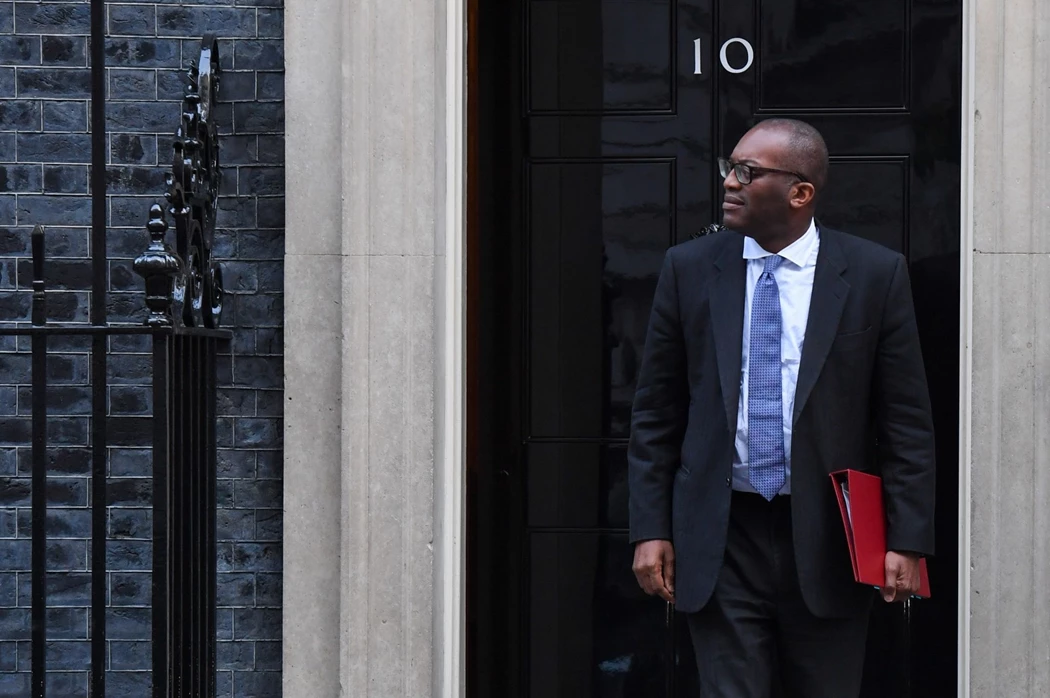Clock Ticks for U.K. to Ease $24 Billion Jump in Energy Bills
(Bloomberg) -- U.K. households face a $24 billion spike in their energy bills in April, and the government is running out of time to do something about the biggest reason why: ballooning wholesale costs.
Finding a way to help energy companies lessen that 18 billion-pound jolt, or at least spread it over several years, would be the most effective option, according to industry executives. But the government needs to act before the energy regulator sets the level for some household bills on Feb. 7. Missing that deadline also carries political risks.
Business Secretary Kwasi Kwarteng met company bosses this week -- with many attending in person in a departure from the purely virtual meetings held in recent months. The chief executive officers of Centrica Plc and Octopus Energy Ltd. were among those in the room. One potential solution would be for the government to help arrange a multibillion-pound fund that the companies could tap to slow bill increases, but no agreement was reached.
“They’re certainly running out of time,” said Guy Newey, strategy and performance director at researcher Energy Systems Catapult and a former political adviser. “They need to be able to tell consumers, ‘We know bills are going up, and we’ve got your back.’”

Other options considered at the meeting included eliminating green levies, cutting taxes on bills and extending financial help such as the Warm Home Discount. Yet their impact would be minimal, and some already look less likely to happen. Reducing wholesale costs would be the most effective, but the government so far isn’t feeling the urgency.
The government said Friday it’s continuing to talk with the industry, and it will keep supporting the lowest-income families and the most vulnerable people.
The energy bill for a typical household is set to jump 50% in April to almost 2,000 pounds, more than double the level set in 2017. An increase of that magnitude means the nation’s poorest may end up spending one of every eight pounds on energy consumption, according to Electricite de France SA.
Surging wholesale prices led to the collapse of 24 household suppliers. Their accounts were taken on by surviving competitors, and some of the costs associated with those additions will be tacked on to energy bills next year.
One action being considered is to provide private financing in a smaller fund that would allow companies to spread those new-customer costs over a longer period. Barclays Plc is among the banks considering the plan, Bloomberg News reported last month.
The situation is turning into a full-blown political crisis for Prime Minister Boris Johnson and his Conservative Party, with warnings that some Britons will be forced to choose between buying food and heating their homes.
“This could potentially be one of the key tests of Johnson’s political future, and that’s because it’s a wider cost-of-living issue,” said Josh Buckland, a partner at Flint Global and a former government energy adviser. “That will really make Conservatives nervous at a time when they’re already feeling uncertain of the future.”

The crisis has been brewing for years, as the requirements for suppliers entering the market were lowered about a decade ago. While the rally in costs stretches across Europe, the U.K. is particularly vulnerable because it relies on imports for about half of gas consumption in the aftermath of closing its largest storage site.
Fixing these issues would require a total redesign of the market, something that can’t be achieved in just a few weeks.
Most of the potential remedies being discussed would barely dent a household bill. For example, charges are applied to bills to pay for environmental policies like building renewable energy capacity. Removing these would cut tariffs only by about 140 pounds, and that likely would be temporary.
Cutting the 5% Value Added Tax would save 95 pounds, according to Martin Young, an analyst at Investec Bank Plc. Johnson argued during the Brexit campaign that leaving the European Union would allow the U.K. to remove the VAT from energy bills, but he appeared to reject that idea this week on the grounds that it would help “a lot of people who perhaps don’t need the support.”
“Short-term sticky plasters, such as abolishing VAT, will make matters worse,” said Dieter Helm, professor of economic policy at Oxford University and former energy policy adviser to the government.
The government also could expand the number of households that qualify for support, including the Warm Home Discount for low-income households, Winter Fuel Payments for pensioners and the Household Support Fund for vulnerable people.

Extending those measures, rather than creating something new, is more likely to appeal to Chancellor Rishi Sunak, said Carla Hoppe, founder of Rethink Tax, a policy education organization.
“Treasury have demonstrated willingness to take targeted action to support business and employees who needed it most during the pandemic,” she said. “The case is clear now for further targeted support for households struggling with high inflation and rocketing energy bills.”
More stories like this are available on bloomberg.com
©2022 Bloomberg L.P.





